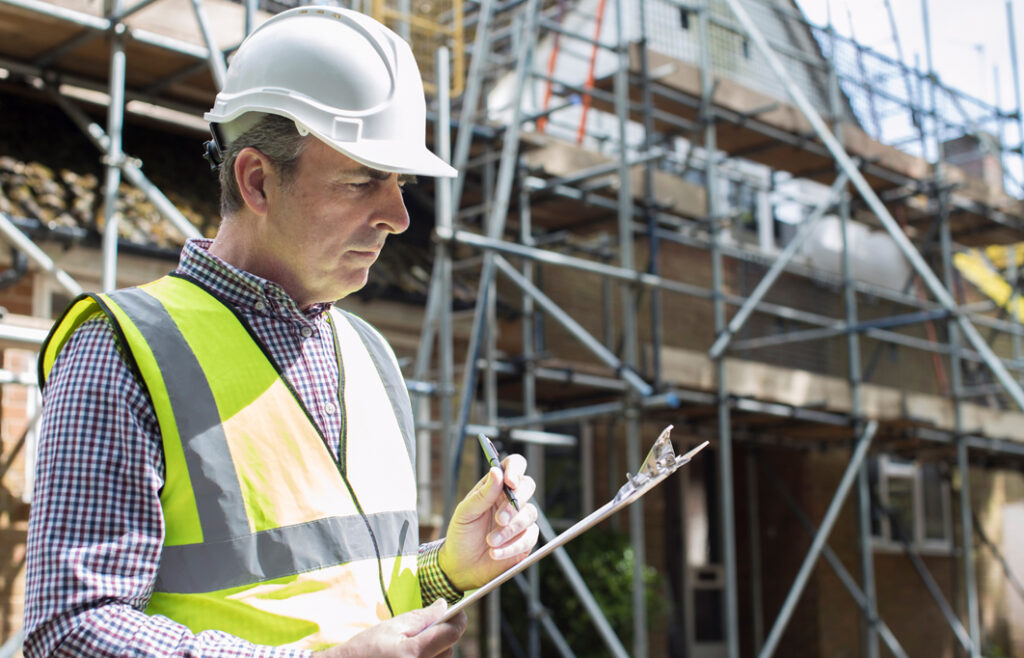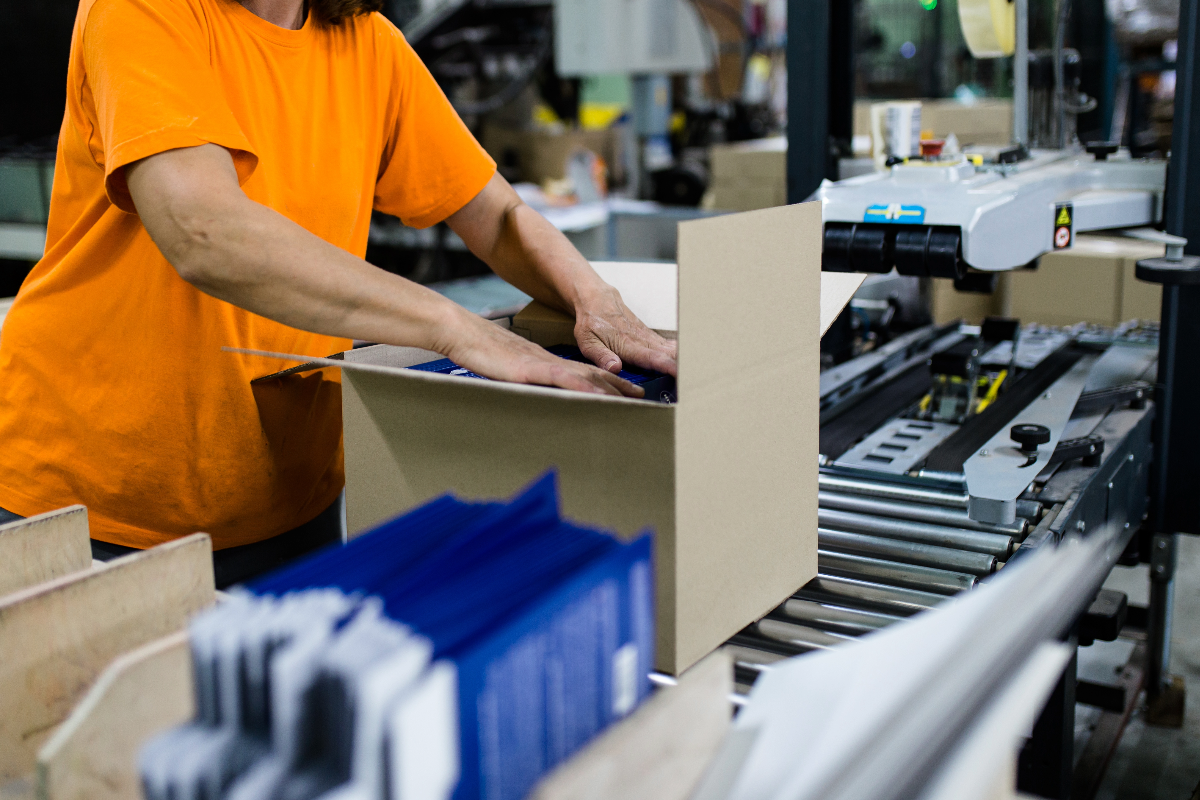BLOG
Construction Waste Management: What is it and how can it help?

Construction waste has become a big problem in recent years, from the effect on the environment to the rising cost, proper construction waste management and disposal has never been more important.
In 2018 the UK’s commercial and industrial sectors generated 43.9 million tonnes of waste and 37.2 million tonnes of it were from England alone.
What is construction waste management?
Putting unused construction materials in the correct bin isn’t enough to fix the tonnes of waste the UK produce every year, that’s why creating a construction waste management and disposal plan for your business is necessary.
These management plans aim to reduce the amount of waste that is produced by construction companies through monitoring and managing how materials and waste will be used and disposed of during the project.
Why is proper waste management important?
In 2011 the UK government put The Waste Regulations into effect. These regulations are built on the EU concept of waste hierarchy which requires anyone managing waste to firstly consider the prevention of waste, then the preparation for recycling, reusing, or recovering waste and lastly disposing of it.
When passing over the waste to the relevant people, a declaration must be made on a waste transfer note that you have considered the waste hierarchy before disposing of it. Not following these regulations can result in fines.
The environment is also another important reason as to why construction waste should be properly managed, as the UK’s landfills create harmful greenhouse gasses that are destroying the environment.


How can the construction sector improve waste management?
Improving your waste management in the construction sector is no easy feat. Projects are long lasting, costly and require a lot of materials, so disposing or recycling these waste materials can be difficult – but there’s plenty of things construction companies can do.
Reducing the amount of waste
We know it’s easier said than done but finding ways to reduce the amount of material that ends up being thrown away is the first step to correctly managing construction waste.
This could include ordering less material (if possible) and making sure that tasks are done correctly to avoid having to ‘re-do’ them which could result in ordering more materials that could ultimately become further waste.
Reusing material
Reusing waste or unused materials on future projects can be an effective way to reduce overall wastage and may even present new opportunities to create a new use for them.
Understanding what types of materials can be recycled or reused is the first step to discovering the many opportunities they present.
We have a range of helpful articles that you may be interested in:
- What happens to the food we throw away?
- Do my controlled drugs need denaturing?
- What is a PRN? Packaging waste regulations
Recycling waste
Being aware of the correct way to recycle materials, which can greatly reduce the amount of waste that get sent to landfills which in turn can reduce the effect that they have on our environment.
Training staff
Ensuring staff are fully aware of The Waste Regulations and the protocols on how they should be treating waste on site is just as important as the handling materials themselves.
Having the confidence of your team to review and judge waste will make your construction site a much safer place, especially when handling potentially hazardous waste.
How can you dispose of construction waste correctly?
In some instances construction waste disposal can be difficult to determine, especially if you’re unaware of the protocols that certain types of wastes such as paint, asbestos and other hazardous materials require in order to be disposed of correctly. Thankfully EWC codes make it easier.
An EWC code is a 6-digit identifier for waste as listed in the European waste catalogue. It classifies waste into different categories according to their production and provides a description of the different wastes. This enables them to be recorded and monitored effectively.
Knowing what EWC code your waste has is important and should be considered often, so it is marked and disposed of correctly especially if your construction site needs to dispose of hazardous waste.
| Waste | EWC Code |
|---|---|
| Aluminium | 37363 |
| Bituminous mixtures with coal tar | 17-03-01* |
| Bricks | 37273 |
| Cables with oil, coal, tar contaminants | 17-04-10* |
| Coal tar and tarred products | 17-03-03* |
| Composite packaging | 38367 |
| Concrete | 36908 |
| Copper, bronze, brass | 36998 |
| Dredging soil with hazardous substances | 17-05-05* |
| Glass | 37304 |
| Glass packaging | 39097 |
| Gypsum materials with hazardous substances | 17-08-01* |
| Insulation containing asbestos | 17-06-01* |
| Iron and steel | 38459 |
| Lead | 37728 |
| Metallic packaging | 38001 |
| Mixed metals | 39189 |
| Mixed packaging | 38732 |
| Paint / varnish remover | 08-01-21* |
| Paper and cardboard packaging | 36906 |
| Plastic packaging | 37271 |
| Tiles and ceramics | 37638 |
| Tin | 38824 |
| Treated wood, glass, plastic | 17-02-04* |
| Unused / unset cement | 17-09-03* |
| Wood | 36939 |
| Wooden packaging | 37636 |
For a full list of waste types and their EWC Codes, please refer to the government waste classification list or use our EWC code search tool to find your waste code in a flash.
Having the necessary equipment is another important factor in your construction waste disposal plan.
The use of Skip Hire can help construction sites in their disposable efforts by having the ability to safely separate materials that require different treatment, whether that be recyclables or other methods of construction waste disposal.
Balers can also be a big asset to construction sites as they can reduce the cost of transporting large amounts of construction waste.
With Flame UK, we have the expertise and knowledge to ensure your construction business is correctly disposing and/or recycling its waste. We’ve handled every type of waste imaginable and so by providing you with the correct equipment and resources you can continue managing your project, whilst we handle the waste.
What are the positive impacts of disposing of construction waste correctly?
It’s already quite apparent that the current impact of fly-tipping, landfill waste and the incorrect disposal of materials is having on the environment.
As more businesses begin to consider their own impact and how to improve this, it is integral that industries lend their hand at correct waste disposal and management.
Responsibility
The positive impact on the environment doesn’t end or begin with less waste in landfills, it means recognising that we have a responsibility to use fewer natural resources which creates that waste, and in turn, creating less Co2 emissions from producing and transporting those materials.
Reputation
The environmental impact also has a part to play in a company’s reputation, as many potential employees are interested in working with businesses that care about reducing the waste it produces and helping the environment.
Cost Savings
Having the correct construction waste disposal processes in place can also save your company money. The fewer materials that end up as waste then contribute to less transportation costs. We’ve even experienced some of our clients creating a new stream of revenue from their waste materials.
Start Today
Here at Flame UK, we have the experience and knowledge to help your business with your construction waste management and disposal.
If you would like to discover how you can reduce business waste costs and begin a comprehensive construction waste management plan, or would like to talk to our team regarding disposal and recycling services, please contact us on more about how we can help, please contact our team on sales@flameuk.co.uk or call us on 0115 896 5460.




